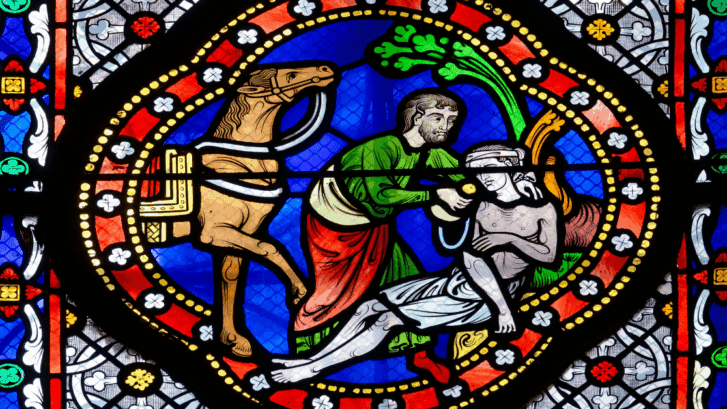We can learn an important lesson from the lawyer in our Gospel story. He stood up to test Jesus with a question. He wasn’t seeking truth. He was looking for control and a definition.
He asks, “Who is my neighbor?” But he does not ask this because he was concerned for others, or because he cared for those around him. It was for his own security. He wanted to justify himself and secure his own righteousness.
But Jesus did not fall into his trap. The Lord did not offer a neat and tidy definition of a neighbor. Why not? Because love – true self-giving and compassion – cannot be captured in definitions.
Instead, Jesus tells a story. Not a story that defines a person, but defines a way of life. To fully grasp what Jesus is doing, we must first understand how radical, and even shocking this parable must have sounded to His audience. The idea of a Good Samaritan was not just surprising – it was offensive.
At the time, the Jews and the Samaritans hated each other. To the Jews, Samaritans were unclean, social outcasts and religious heretics. And yet, Jesus makes a Samaritan the hero of the story. He told this parable to a people who saw themselves as God’s chosen, and who held a strong hostility toward outsiders. So, when Jesus puts mercy in the hands of the enemy, He completely changes their worldview.
So, who is our neighbor? It’s simple. Our neighbor is the poor, the sick, the lonely, the neglected. But I cannot tell you who specifically your neighbor is; to whom you must show compassion. Only you know that. Only you can see your neighbor, if your eyes are opened by God’s grace. Only you know who you must reach out to.
Many years ago, I heard a Baptist minister preach about this parable. When he came to the priest and the Levite who walked by the wounded man, he said, “Those men were perfectly at home in Jerusalem. They could handle everything about the Temple – the Torah, the altar, the incense, the sacrifices. They could even manage the Ark of the Covenant. They were experts … but they couldn’t handle the Jericho Road.”
We have all walked on our Jericho roads. We encounter what we would much rather pass by and ignore. Maybe a bit of ourselves that has fallen among the robbers. We could become accomplished at what we do; become a huge success in the eyes of the world. Yet, we can still refuse to look at that part of our lives that is lying beaten on the Jericho Road. The part that needs to be picked up, taken care of and healed.
It could be the urge to gossip, unwillingness to be charitable, anger, loneliness or fear. We must not forget to care for ourselves while we still care for others. From time to time, we might have to be our own Good Samaritan.
The Gospel shows us that the Kingdom of God that Jesus preaches often turns our world and our expectations upside down. It is the foreigner, the lowly and the scorned Samaritan who shows kindness to the man who was beaten and robbed, while the holy men did nothing to help him.
My friends, this is a powerful story Jesus gives us. But we must always remember, this is not just a story to hear. It is a story we are called to live.



JMJ+ Good teaching, Fr. Bob. Could you explain: “…don’t let your right hand know what your left hand is doing,” and in, “… letting your light shine for others to see and follow your example….”? Perhaps I get hung up in semantics, I don’t know. Know one wants to be a braggart, but? Sometimes it sounds like hubris and then there’s the good side of pride….? Thank you……..GOD bless and Mary keep you well and protected from evil. amen